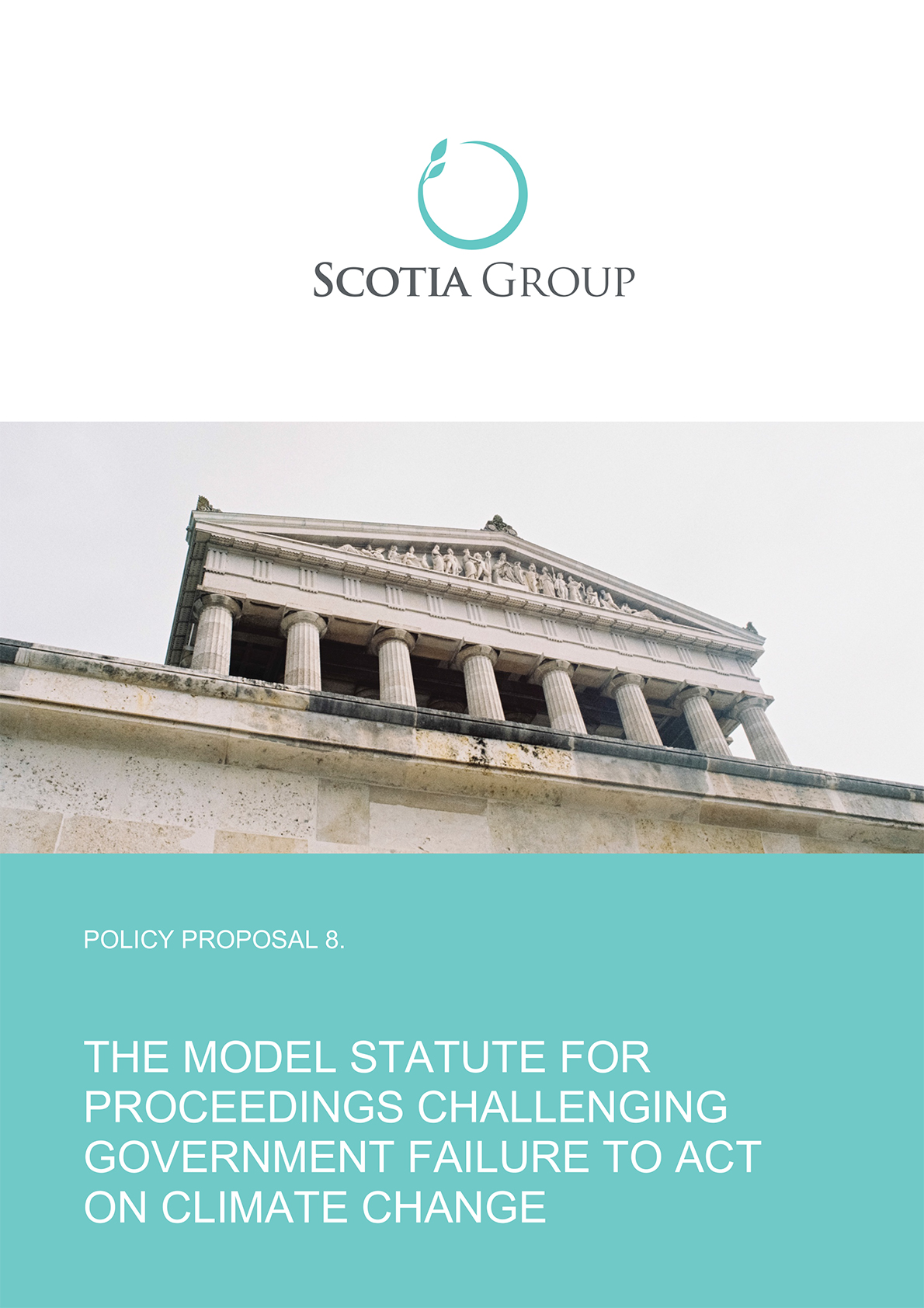Policy Proposal 8:
THE MODEL STATUTE FOR PROCEEDINGS CHALLENGING GOVERNMENT FAILURE TO ACT ON CLIMATE CHANGE
This report, launched by the International Bar Association (IBA) in February 2020, highlights the role of litigation in setting requirements for governments to protect their citizens and communities from climate impacts.
Background:
In July 2014 the IBA published the Task Force report, ‘Achieving Justice and Human Rights in an Era of Climate Disruption’, a ‘ground-breaking’ critical comprehensive survey of existing international, regional and domestic legal frameworks relevant to climate change, and identified, using a justice-centred perspective, opportunities for legal, regulatory and institutional reforms at multilateral, state, corporate and individual levels to enhance mitigation and adaptation to climate change.
Citizen climate litigation can provide a critically important means for people and vulnerable communities to ask courts to require governments to reduce greenhouse gas (GHG) emissions and other measures to reduce climate-related impacts. These types of claims are increasing, particularly in the wake of the Paris Agreement in December 2015.
Recent citizen climate litigation has led to judges in some countries requiring governments to assess and take action to address climate change. On the other hand, in many other countries, legal obstacles might prevent citizens even getting through the courthouse door or judges from adapting existing judicial procedures to remedy government climate inaction. The legal hurdles often raised in an attempt to defeat citizen climate claims for governments to act, were identified by the International Bar Association’s (IBA) Task Force on Climate Change Justice and Human Rights in its 2014 report. A large part of the problem was associated with procedural requirements and concepts that had been developed in legal contexts that were mainly intended for different types of disputes between two parties and that did not have to deal with worldwide diffuse sources of climate change and climate harms.
Read the full Proposal here



